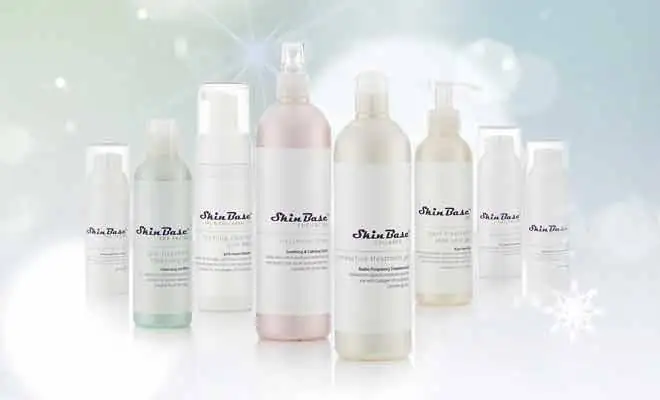There are a number of things that happen to skin as we age. The overall effectiveness of all three layers of skin decreases, resulting in the loss of elasticity, less frequent production of collagen and oils, and a decreased number of sweat glands, blood vessels, melanocytes and nerve endings. These factors each impact the appearance of the skin and its ability to stay protected.
The Ultimate Guide to Dull Skin
The SkinBase™ ‘Ultimate Guide to Dull & Tired Skin’ has been created by beauty industry professionals and is packed full of hints, tips and information on how to treat and look after dull & tired skin.
Download Now
Decreased Elasticity and Collagen
Collagen can be thought of as the ‘scaffolding of the skin’ as it is responsible for a tight, smooth appearance. A loss of collagen in the skin is a part of the natural intrinsic ageing process. Collagen fibres become thinner and looser in skin as we age, negatively affecting firmness and elasticity of the skin. As a result, the epidermis may not hold water as well, so skin may appear thinner, less plumped and wrinkled.
Minimised Sebum and Sweat Glands
As we age, so do the processes within our body. With time, the sebaceous glands begin to produce less oils and the sweat glands shrink. This is particularly true for those going through menopause. As a result, skin begins lacking in moisture and can feel dry, itchy and dehydrated.
Fragile Blood Vessels
The ageing process also affects blood vessels. As the number of vessels decreases in skin as we age, blood flow minimises. Existing vessels become more fragile and break much more easier, as the skin loses fat and offers less protection. Because of this, bruising and bleeding under the skin becomes more common. Minor injuries may result in hematomas or purpuras, as blood collects within the skin.
Decreased Melanocytes
Melanocytes are pigment-containing cells within the skin. One of the key signs of ageing skin is a paler, more transparent appearance. This pigment change occurs as the number of melanocytes decreases, and those remaining increase in size.
What Happens To Skin As We Age?
While signs of ageing skin are naturally occurring and cannot be prevented, your lifestyle can slow down or accelerate the process. Don’t worry, we are here to help! Our range of treatments and products will keep you feeling youthful. Check out our free Ageing Skin Guide and begin your youthful skin journey.

